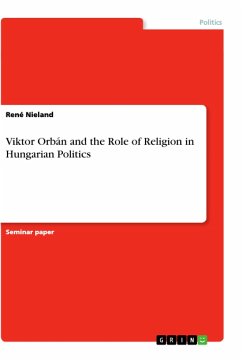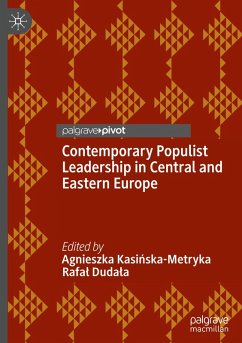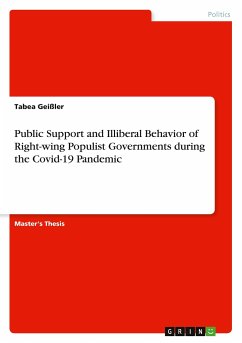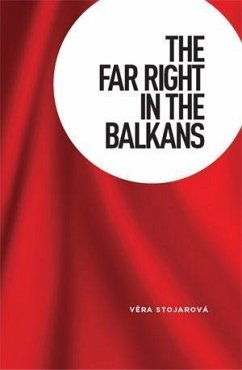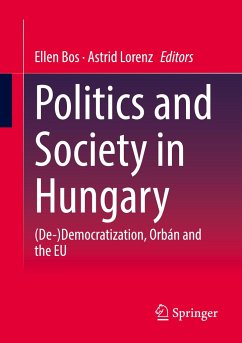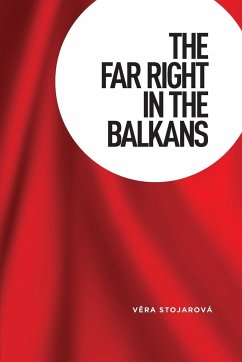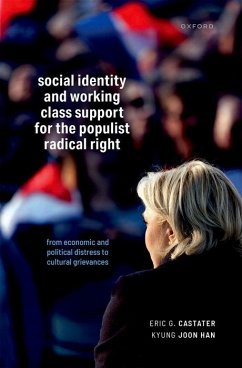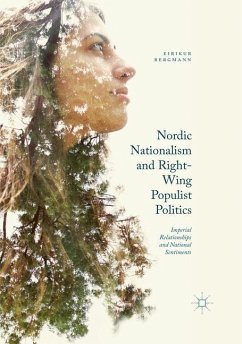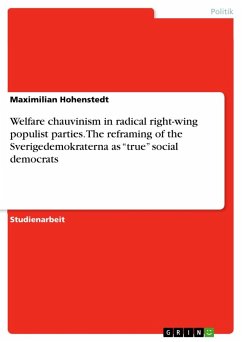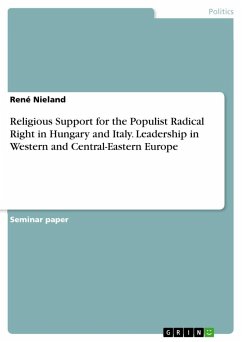
Religious Support for the Populist Radical Right in Hungary and Italy. Leadership in Western and Central-Eastern Europe
Versandkostenfrei!
Versandfertig in 1-2 Wochen
16,95 €
inkl. MwSt.

PAYBACK Punkte
0 °P sammeln!
Seminar paper from the year 2023 in the subject Politics - International Politics and Country Analyses, grade: 1,0, University of Vienna, language: English, abstract: The U.S. presidential election of Donald Trump in 2016 brought to light, what previously was seen as a sideline phenomenon in other parts of the world, with leading European far-right politicians and Hungarian PM Viktor Orbán from Fidesz being among the first state figures to congratulate on Trump's victory. In the same period, Britons held a referendum that manifested the British exit from the European Union (EU), with the leav...
Seminar paper from the year 2023 in the subject Politics - International Politics and Country Analyses, grade: 1,0, University of Vienna, language: English, abstract: The U.S. presidential election of Donald Trump in 2016 brought to light, what previously was seen as a sideline phenomenon in other parts of the world, with leading European far-right politicians and Hungarian PM Viktor Orbán from Fidesz being among the first state figures to congratulate on Trump's victory. In the same period, Britons held a referendum that manifested the British exit from the European Union (EU), with the leave-campaign being orchestrated first and foremost by figures from (populist radical) right parties such as Nigel Farage and his United Kingdom Independence Party. This sparked the debate on the (im-)possibility of an Alt-Europe. Two party leaders prominently ignited the European discourse on populist radical right parties (PRRPs). With Italian PM Giorgia Meloni resembling and sympathizing with Trump¿s time in office, this paper attempts to compare motivations of the populist radical-right party (PRRP) sympathizers of Hungary and Italy. Explicitly, the two Constitutions take a different approach to the role of religion within the state, but the Prime ministers Viktor Orbán and Giorgia Meloni show similarities in their public appearance, frequently upholding their Christian mission. The question this work wants to answer is: What role does religion play for political sympathy for European PRRPs today? Using the ESS10 dataset, a multivariate regression is applied to approach this question.



